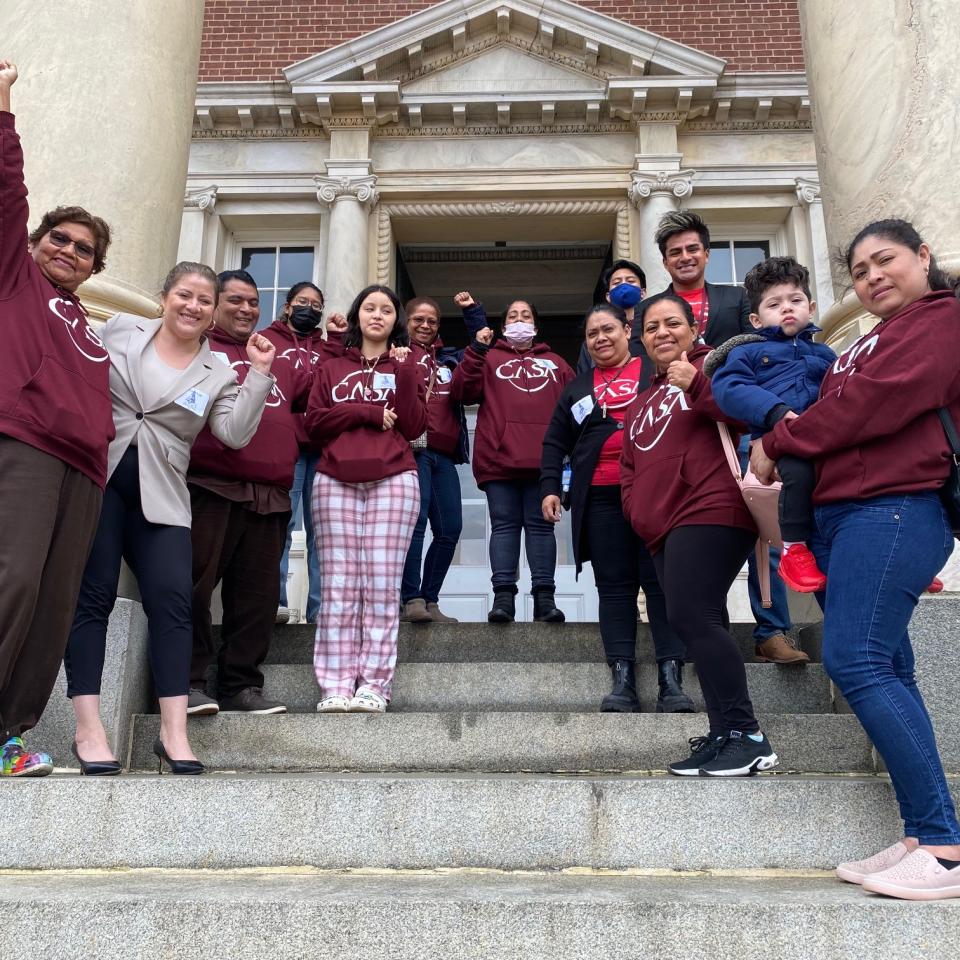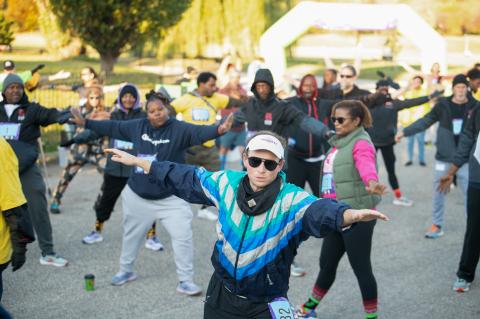
We all deserve care: a Q&A with CASA
Earlier this year, Health Care for the Homeless partnered with CASA to back the Healthy Babies Equity Act. The Act, now law, will provide full Medicaid coverage for income-eligible pregnant people and their children one year postpartum regardless of immigration status. Ahead of implementation in the coming year, we spoke to Kony Serrano Portillo, Research and Policy Analyst at CASA, about the bill and health care access in Maryland.
CASA is a champion for the rights of immigrants and Latinos living in Maryland. Where does access to health care rank among the issues relevant to the community CASA serves?
Access to health care is, without question, one of the most urgent issues facing the Black and brown immigrant community. Immigrant families, especially those without status, have historically been excluded from countless basic public benefits—and now, the pandemic has made these already existing exclusions even more painful for immigrant families.
Black and brown immigrant communities were some of the highest impacted by COVID-19 and have struggled to receive health services during a global emergency that hasn’t ended. Our community continues to struggle to receive care in the face of life or death situations and have found themselves in deep medical debt that puts at risk their housing stability, food security, employment, transportation stability and educational opportunity.
Pandemic aside, it is critical that immigration status is removed as a barrier to receiving health care.
What are the repercussions you are seeing in communities that aren’t eligible for insurance?
Uninsured individuals often experience delay or forgo preventive care screenings due to out-of-pocket-cost. This often leads to individuals being diagnosed with chronic diseases in advanced stages and dying more prematurely than individuals with insurance. In Maryland, the leading causes of death are heart disease and cancer—both medical conditions are preventable or curable if detected in early stages. Currently, members of our community do not have access to that early detection or treatment.
What role do people with lived experience – of being denied care for not having insurance – play in CASA’s advocacy work?
CASA members are at the forefront of all aspects and layers of the advocacy process. Through community organizing and advocacy, CASA is able to ensure that all individuals have the core support necessary to fully advocate at the legislative level for the issues that are impacting their communities.
This past legislative session, CASA led a coalition that successfully got the Healthy Babies Act passed. Why is this new law so important? Why focus on prenatal care specifically?
The Healthy Babies Equity Act is a massive step forward in our fight for expanding health care to all people regardless of immigration status. This legislation, that will go into effect next summer, will bring us closer to improving health outcomes and closing health inequity gaps in the state. Receiving prenatal care reduces complications during pregnancy, problems during delivery, improves nutritional care during pregnancy and ultimately leads to better health outcomes for parent and child.
How does Healthy Babies fit into health care access nationally?
Maryland became the 18th state to provide prenatal care to pregnant people, regardless of status. In recent years, more and more states have taken action to provide care for parents and children all over the country. We hope that Maryland will continue to be an example and an ally to other states, as well as part of the larger national effort, to continue closing health disparities amongst communities of color.
What’s ahead for the upcoming legislative session?
With the General Assembly convening again in January of 2023, CASA is committed to introducing comprehensive legislation to ensure that every Marylander has access to health care, regardless of their immigration status. We are excited to continue to work with other states and advocacy groups—like Health Care for the Homeless—to expand coverage.
Learn more about CASA's work at www.wearecasa.org
More Recent News
At our annual staff holiday party, we take time to recognize and celebrate staff members who best represent our Core Values, as well as one recipient of the Von Bradshaw Award, named after Delvonia "Von" Bradshaw, who passed away in 2024 and truly held the principles of Health Care for the Homeless to heart. Please congratulate your colleagues when you see them!
Those of us in the Health Care for the Homeless community share a belief in something powerful: that everyone should have a place to call home.
Hope for that vision isn’t passive. It’s something that clients, staff and community supporters make possible together.
With SNAP benefits in Maryland facing uncertainty, many families are wondering how they’ll put food on the table. Here are ways Health Care for the Homeless is helping, as well as a list of local food assistance resources.
On Saturday, November 1, more than 300 runners, walkers, friends and volunteers gathered in Patterson Park for the 2025 Rock Your Socks 5K. Read all about this year's awesome event!




